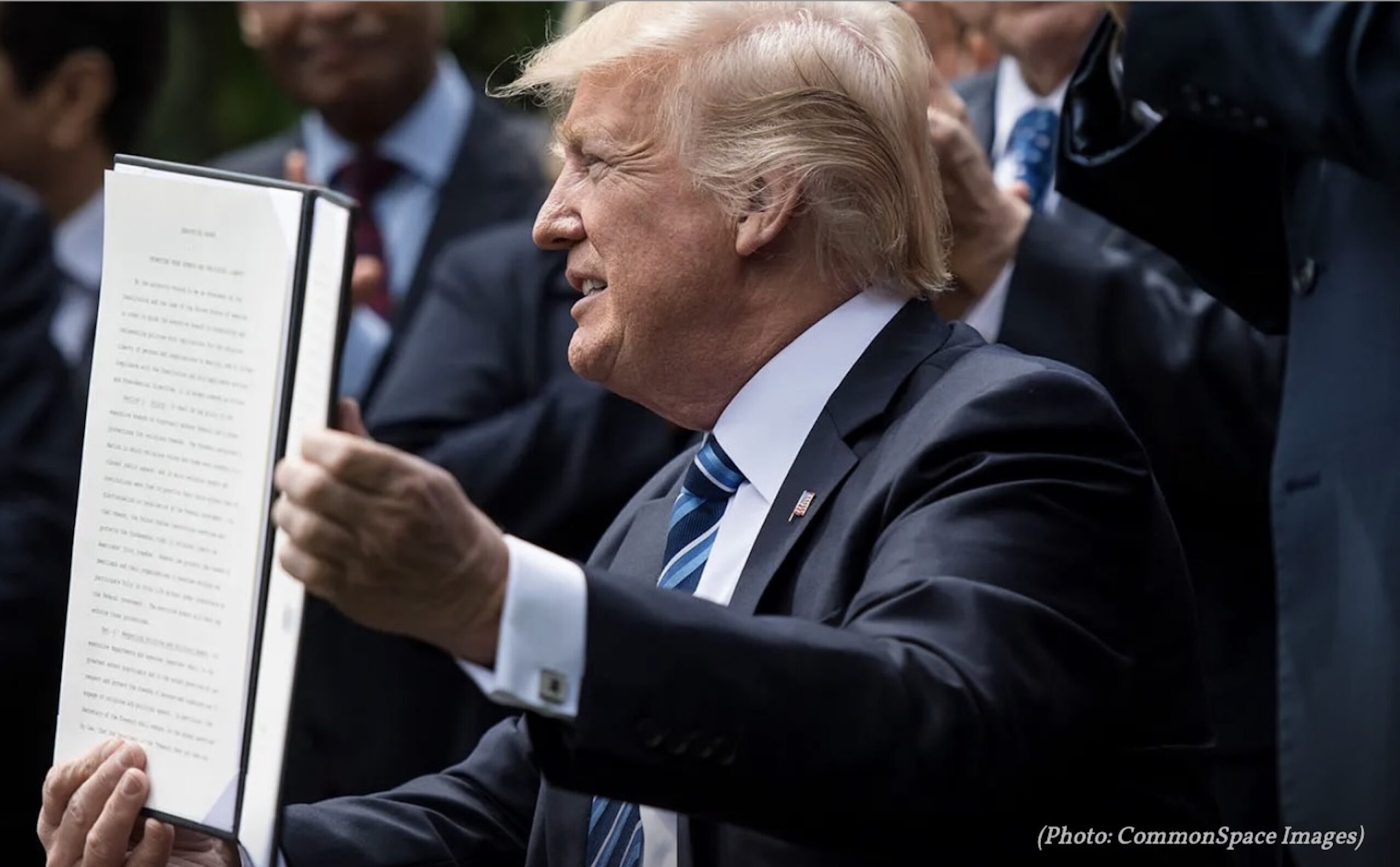
Trump signs historic order establishing ‘Religious Liberty Commission’ to safeguard against government persecution
“Americans need to be reacquainted with our Nation’s superb experiment in religious freedom in order to preserve it against emerging threats,” the order emphasized.
By Breanna Claussen, Harbinger’s Daily – May 2, 2025
During events at the White House for the National Day of Prayer on May 1st, President Donald Trump signed an executive order to establish a first-of-its-kind “Religious Liberty Commission.”
According to the executive order, “the Commission shall produce a comprehensive report on the foundations of religious liberty in America, the impact of religious liberty on American society, current threats to domestic religious liberty, [and] strategies to preserve and enhance religious liberty protections for future generations…”
Franklin Graham, President and CEO of the Billy Graham Evangelistic Association (BGEA) and Samaritan’s Purse, was appointed by the President to be one of 14 committee members, along with Kelly Shackelford, President and CEO of First Liberty Institute—a non-profit legal organization dedicated to protecting Americans’ religious freedom.
Shackelford applauded the establishment of the commission, writing in a statement, “For too long, government officials have been hostile to expressions of faith despite First Liberty’s numerous victories at the Supreme Court. It will be a privilege to do everything we can to protect religious liberty and restore our First Freedom for all Americans.”
The Chairman of the Commission, Texas Lt. Gov. Dan Patrick, added: “The last administration attacked people of faith for four years. There’s a saying that no one should get between a doctor and a patient. I think we would say no one should get between God and a believer. No one should get between God and those seeking him.”
The executive order
The order highlights the vital role religious liberty has had in the Founding of the United States, underscoring the hostility that has emerged targeting the freedoms of religious Americans.
“It shall be the policy of the executive branch to vigorously enforce the historic and robust protections for religious liberty enshrined in Federal law,” the order states. “The Founders envisioned a Nation in which religious voices and views are integral to a vibrant public square and human flourishing and in which religious people and institutions are free to practice their faith without fear of discrimination or hostility from the Government.”
“Indeed, the roots of religious liberty stretch back to the early settlers who fled religious persecution in Europe, seeking a new world where they could choose, follow, and practice their faith without interference from the Government,” it continued. “The principle of religious liberty was enshrined in American law with the First Amendment to the Constitution in 1791. Since that time, the Constitution has protected the fundamental right to religious liberty as Americans’ first freedom… The Supreme Court has also continued to vindicate the Founders’ commitment to religious liberty, including by giving effect to the principle that religious voices should be welcomed on an equal basis in the public square.”
“In recent years, some Federal, State, and local policies have threatened America’s unique and beautiful tradition of religious liberty,” the order warned. “These policies attempt to infringe upon longstanding conscience protections, prevent parents from sending their children to religious schools, threaten loss of funding or denial of non-profit tax status for faith-based entities, and single out religious groups and institutions for exclusion from governmental programs.”
“Some opponents of religious liberty would remove religion entirely from public life,” it stressed. “Others characterize religious liberty as inconsistent with civil rights, despite religions’ vital roles in the abolition of slavery; the passage of Federal civil rights laws; and the provision of indispensable social, educational, and health services.”
“Americans need to be reacquainted with our Nation’s superb experiment in religious freedom in order to preserve it against emerging threats,” the order emphasized.
The Religious Liberty Commission will advise the White House Faith Office and the Domestic Policy Council and have a term of two years, ending on July 4th, 2026—the 250th anniversary of America’s Independence. Prior to this date, the President has the option of extending the commission for an additional term of two years.
An answer to prayer
In the lead-up to the 2024 election, Christian leaders emphasized the necessity of fervent prayer for the United States as voters made the critical decision of who would lead the nation. Tennessee Governor Bill Lee signed a historic bill calling for a month of prayer, which took place in July, leading pastors such as Jack Hibbs to urge Christians to participate in every state across America.
The Apostle Paul underscored that a primary reason Christians are to pray for their nation and governing authorities is so that “we may lead a quiet and peaceable life in all godliness and honesty” (1 Timothy 2:2). In other words, we pray that our leadership would grant and protect the freedom of believers to live according to their Biblical worldview and preach the Gospel unencumbered. This verse was often referenced by evangelical leaders who called for prayer in the months prior to the election and was especially consequential in the wake of the Democrat administration’s actions to suppress and persecute Christians.
With President Donald Trump’s establishment of the Task Force to Eliminate Anti-Christian Bias, the White House Faith Office, and now the Religious Liberty Commission, Bible-Believing Christians should recognize this as an exceptional answer to prayer, thanking God that governing authorities in America are once again working to safeguard our freedoms and ability to share the Gospel boldly.
